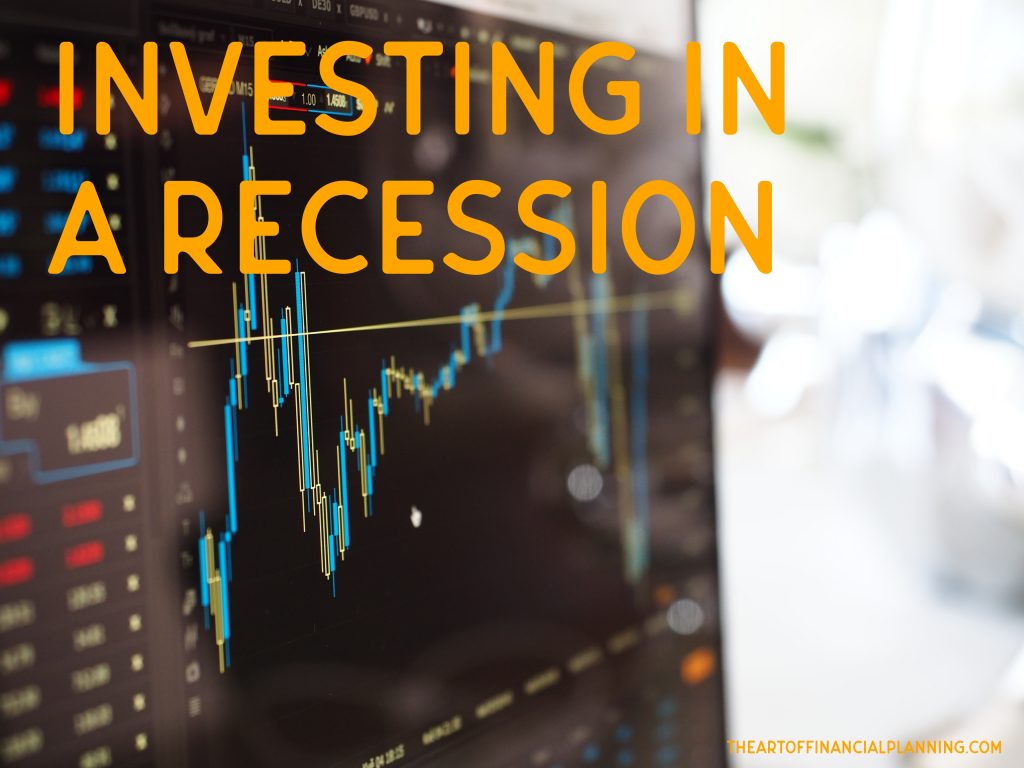
Recent news warning of a potentially looming recession can bring with it waves of uncertainty for investors. Whether you have solid years of experience investing in the market or are just thinking about dipping your toe in, you may be wondering what the best way forward is. Overall, the best strategy is to keep on with your long term plans, despite current recession fears. Don’t get caught up in the day-to-day market fluctuations. After all, investing in a recession is about playing the long game.
Don’t Panic Even If Your Portfolio Dips
It can be quite unnerving to see your current holdings take a nosedive or even a small dip. After all, you worked hard for that money and invested it hoping to grow it further, only to see it now worth possibly less than you originally invested. I know it is disconcerting but one must always remember: what goes up must come down. It seems elementary, but the best investing concepts are simple. Stay the course and if you are investing in a diversified portfolio of index funds, you are likely to see those dips do an about face and rise again. Getting out of the market while stocks are at a low point only solidifies your losses by selling those shares for less than you bought them. Wait and see the rising tide of consumer confidence begin to grow again and you will see your portfolio rise again. One caveat: if you are invested in single stocks and see a single company start to plummet due to mismanagement, a scandal in the press, or other specific issue, speak with your financial advisor about whether that stock is still a good buy. It may be that the bad press will blow over and the company will remain solvent but if it is on the outs it might not be worthwhile to go down with the ship.
Assess How Much Risk You Can Take
Watching that dip in your portfolio is much more unnerving if you are in your 50s and nearing retirement than if you are in your 20s. The closer you are to needing that money means it has less time to recover and recoup the losses from a recession. Now is the time to speak with your investment advisor to discuss your concerns and assess your risk. You may need to move into some less risky investments like bonds that won’t take as much of a beating in the event of a recession, though they won’t give you as much growth either. But if you will need your retirement investments in the next few years its better to be safe than sorry. You may need to rebalance your portfolio every so often to ensure that your risk is evenly distributed and as low or high as it needs to be based on your long-term needs.
Continue to Invest and Buy Low
Buying low and selling high are your investing guideposts, and what better opportunity to buy low than when stocks are on a decline due to a recession? If your investment strategy includes dollar cost averaging, continue to set aside those monies each month or quarter to invest in index or mutual funds. Buying low now will give your money a chance to buy more shares and a nice growth opportunity in the future. The safest stocks in a recession are high-quality companies with long business histories. Think of household brands your family knows and trusts that have a long business history, particularly ones that sell consumer staples that people will always need to buy. Brands like Kraft, Proctor & Gamble, and Exxon have long, steady experience in business and making it through many downturns, plus their goods are always in demand by consumers. Also, if your employer offers a match to your retirement contributions, make sure you are at least investing enough to get the full match. Don’t leave that money on the table.
Investing in a recession, or even just the threat of one, can seem scary but if you let your head rule rather than your heart you will prevail. Continue to make wise, long-term focused decisions and meet with your financial advisor to ensure that you are on track for your long term goals. You may need to increase your contributions while investing in a recession, or keep them the same, depending on market projections, how far your portfolio drops, and when you will need to access your investments. Despite your fears, a recession is not the time to jump out of the market and it is best to stay in it to win it.


